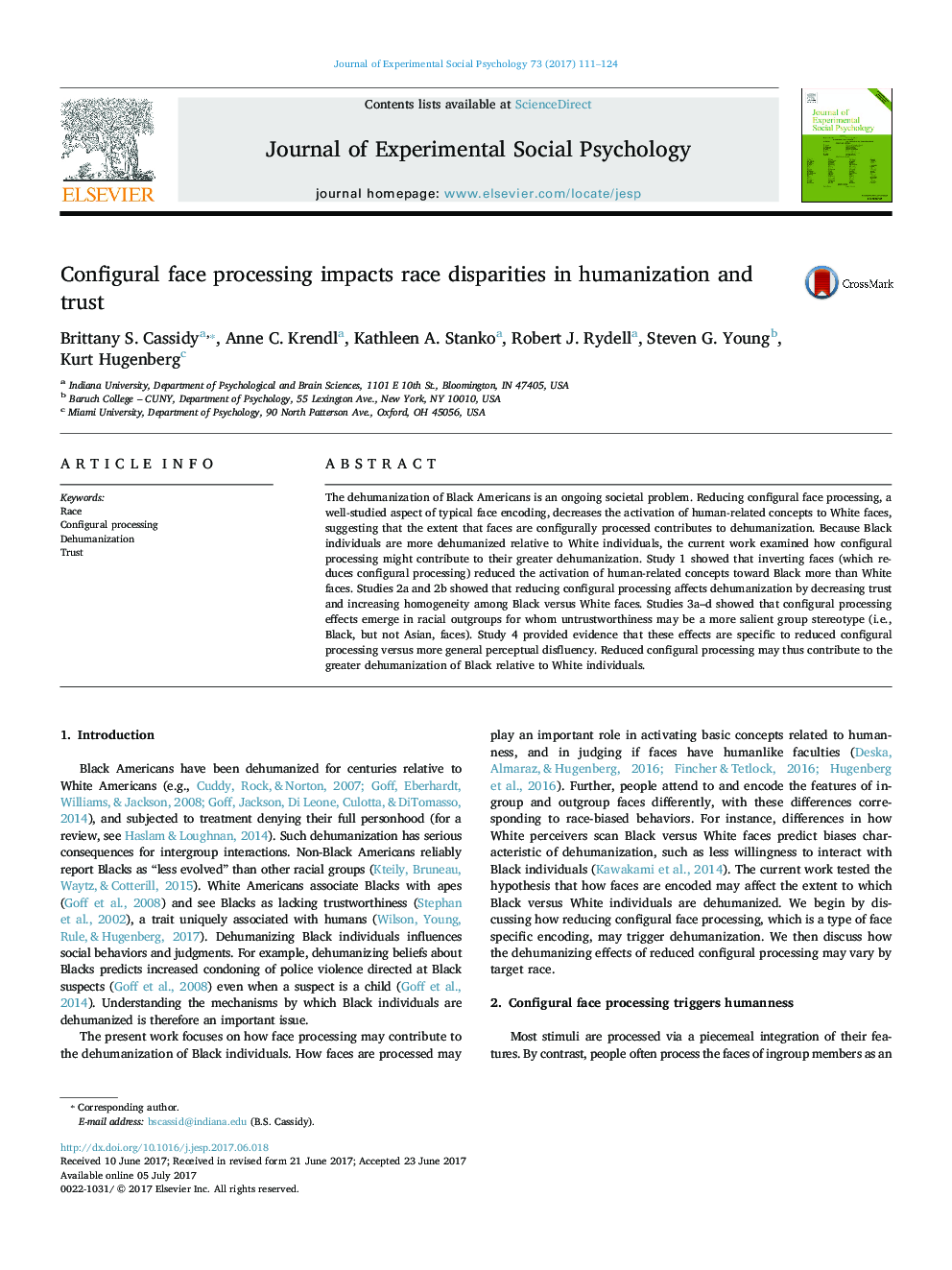| Article ID | Journal | Published Year | Pages | File Type |
|---|---|---|---|---|
| 5045692 | Journal of Experimental Social Psychology | 2017 | 14 Pages |
â¢Configural face processing contributes to the dehumanization of Black individuals.â¢Configural disruptions inhibit humanization more for Black than White faces.â¢Configural disruptions reduce trustworthiness attributed to Black over White faces.â¢Configural disruptions increase the perceived homogeneity of Black over White faces.â¢Disruptions may increase category stereotype salience to elicit dehumanizing effects.
The dehumanization of Black Americans is an ongoing societal problem. Reducing configural face processing, a well-studied aspect of typical face encoding, decreases the activation of human-related concepts to White faces, suggesting that the extent that faces are configurally processed contributes to dehumanization. Because Black individuals are more dehumanized relative to White individuals, the current work examined how configural processing might contribute to their greater dehumanization. Study 1 showed that inverting faces (which reduces configural processing) reduced the activation of human-related concepts toward Black more than White faces. Studies 2a and 2b showed that reducing configural processing affects dehumanization by decreasing trust and increasing homogeneity among Black versus White faces. Studies 3a-d showed that configural processing effects emerge in racial outgroups for whom untrustworthiness may be a more salient group stereotype (i.e., Black, but not Asian, faces). Study 4 provided evidence that these effects are specific to reduced configural processing versus more general perceptual disfluency. Reduced configural processing may thus contribute to the greater dehumanization of Black relative to White individuals.
